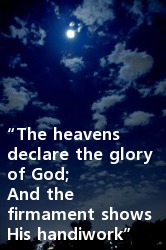
I am an evidentialist. Having said that, I can sense that I am about to be surrounded by a host of theologians who will gladly lower their heavenly weapons at me. But before you classify me with David Hume and Bertrand Russell, let me explain what I mean. I believe that all humans apprehend truth in part through evidence (what some would call “hard evidence”). Dr. Bauder’s articles on Subjectivity and Objectivity have aroused my interest to write on the same subject. This is not meant as a contradiction of what he has said. I hope, likewise not to take anything away from what he is planning to write. Dr. Bauder was my faculty advisor, and pushed me to develop intellectually in ways I had not anticipated. I owe him a great deal for instructing me how to better tackle theology. So consider this as part of a conversation he started. I simply am entering the conversation with a different perspective.
I am an evidentialist by the definition I have given for two reasons (I would say “common sense” is one, but I know that would create more arguments than it is worth). Here are the reasons:
1. God created us to apprehend reality and thus arrive at truth (while not all truth) through the senses.
We are fascinated by scientific measuring devices and their ability to bring us knowledge: say a thermometer or a compass. Scientific measuring devices are basically (often crude) imitations of measuring apparatuses in humans, animals and plants. In humans, these measuring devices make up part of our sensory organs. For example, the rods and cones (over 100 million of them) in the retina of the eye are photoreceptors. Each registers the smallest particle of light, a photon, when it comes in the visual pathway. The incredibly high sensitivity of the retina is the reason you should not look directly at the sun.
Aristotle began his Metaphysics with the statement, “All men naturally desire knowledge. An indication of this is our esteem for the senses; for apart from their use we esteem them for their own sake, and most of all the sense of sight…. The reason of this is that of all the senses sight best helps us to know things.” Through the senses we perceive reality quite correctly, and, combined with our current knowledge, arrive at new truth.
David’s actively measuring retinas helped him perceive the glistening reality of the night sky. Sensory experience combined with David’s knowledge of God as creator, plus the aid of the Holy Spirit caused him to produce a profound sacred statement: “When I consider Your heavens, the work of Your fingers, The moon and the stars, which You have ordained, What is man that You are mindful of him, And the son of man that You visit him?” (Psalm 8:3-4). David knew about God’s visitations to humans recorded in salvation history. It was David’s sensory experience that got him thinking and filled him with wonder at God’s condescension.

 Read
Read  Read
Read  Read
Read 

Discussion